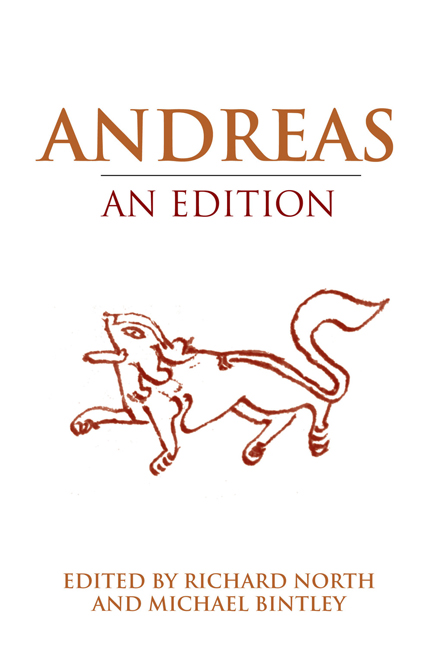Introduction
Summary
The Poem and its Analogues
Andreas opens [fitt I, unnumbered like all the others] with the apostles drawing lots to see where each will spread the Word. Matthew goes to Mermedonia, a city of cannibals. Soon he is arrested and thrown into prison along with other foreigners, but his mind stays true, even when the Mermedonians blind him and drug him with a potion to make him behave like a beast. Expecting to be eaten like the other prisoners after a fattening of thirty days, Matthew appeals to the Lord to save him. The Lord, healing him, assures him of deliverance in twenty-seven, waiting until then [II] to give the job to Andrew, who is preaching far away in Achaea. Asked by the Lord, Andrew begs to be excused, but is roundly rebuked and told to find a ship by the shore the next morning. [III] When he arrives there with his disciples the next day, he finds that a boat has indeed put in, from Mermedonia. The captain, Jesus in disguise with two angels dressed as crew, forgoes the fare and takes them all aboard.
In nearly half the poem that follows (lines 230–980), Andrew is repaid for his initial doubts with a tough journey at sea. [IV] During the voyage Andrew's resolve, memory and loyalty to the Christian cause are tested by the Lord. The heavenly skipper first offers his passengers some bread. The weather worsens, but the disciples, even while seasick, prove their loyalty to Andrew by declining to be set ashore. Andrew's better qualities emerge as he puts heart into his men with the story of Jesus calming the storm in Galilee. [V] When the disciples fall asleep, Andrew compliments the skipper, who then invites him to tell more. The memories which Andrew now provides are of Jesus’ canonical works in the Holy Land [VI] and of Jesus’ first vain encounter with the Jewish priesthood in Jerusalem. [VII] This second tale consists of two apocryphal miracles in the Temple at Jerusalem. For the first miracle, Andrew says that Jesus called on the stone statue of an angel to speak to Jewish elders in confirmation that Jesus is the Son of God.
- Type
- Chapter
- Information
- Andreas: An Edition , pp. 1 - 115Publisher: Liverpool University PressPrint publication year: 2016

